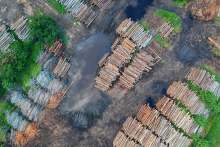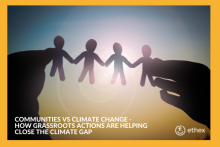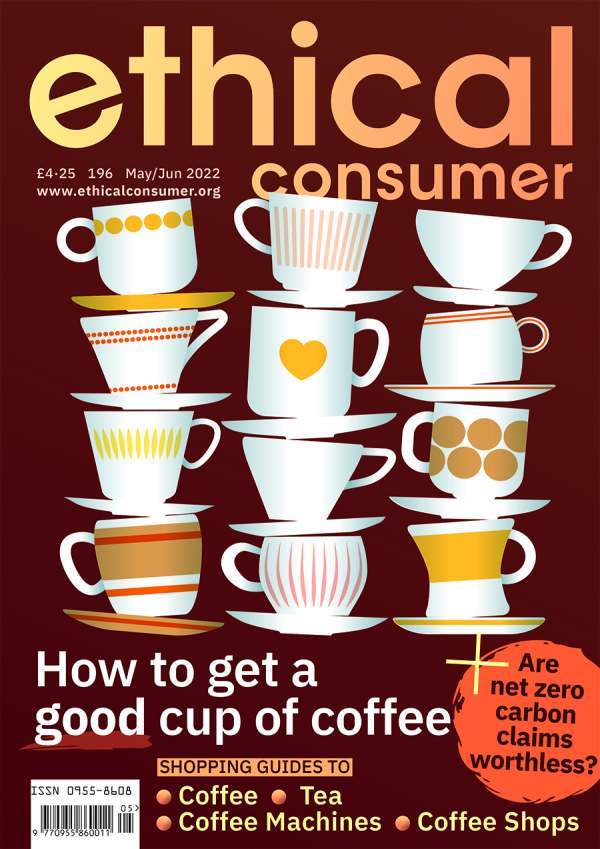BankTrack is a campaigning organisation that targets the biggest private sector banks globally, and aims to stop them from financing projects and companies which are disastrous for communities and the environment. We’re currently a team of ten people, with our main office in Nijmegen in the east of the Netherlands.
We describe ourselves as a tracking, campaigning and civil society support organisation. On the tracking front, our website has profiles of over 200 of the largest banks in the world, as well as hundreds of profiles of the ‘dodgy deals’ they finance – projects or companies with damaging impacts on communities, the environment, or both.
Banks are notoriously secretive – they rarely publish details of their corporate customers, and often won’t answer questions about what they finance. So, this online database of dodgy deals financed by banks is a powerful tool for checking what lies behind banks’ carefully worded environmental policies and lengthy sustainability reports, showing where banks are really putting their money.
Are banks still as terrible as they have always been at addressing their ethical impacts?
Well, they are still pretty terrible but, in the fifteen years we’ve been doing this, we have seen a lot of changes. In 2003 when we started, it was unusual for banks to have any policies governing their environmental and social impacts. Now it’s the norm. The problem now is that those policies often aren’t very meaningful, and are not effective in stopping dodgy deals from being financed.
One example of the kind of change we’ve seen is that, in 2003, a group of 12 banks developed the ‘Equator Principles’ – a set of voluntary standards governing their finance for large infrastructure projects. Now the Equator Principles have grown to cover 92 banks around the world. But it was only two years ago that, after years of pressure, signatories to the Principles started to actually publish lists of the projects they are financing under these Principles. That’s a step forward, but we’re a long way from making sure the Equator Principles prevent banks financing disastrous projects – like the infamous Dakota Access Pipeline, which was financed “under Equator”.
A more significant change in recent years is that more of the largest banks are starting to get out of the coal industry. Years of campaigning by us and many other organisations for banks to quit financing coal – as the biggest single cause of climate change – have started to yield results, helped along by the failing profitability of the industry. Now, at least 11 of the big banks have ended direct finance for both new thermal coal mines and coal plants. The UK banks are lagging behind on this score, with HSBC and Barclays still heavily into coal finance. HSBC recently refused to end its support for coal-fired power plants in developing countries, and is backing coal plants in South Africa and Vietnam for example – projects it would consider too polluting for European countries.
What are your key campaigns at the moment?
Climate change, human rights and the Equator Principles are our biggest campaign areas right now. On climate change, banks need to move beyond coal, and start cutting off finance for new fossil fuel projects as rapidly as possible. On human rights, we need banks to recognise that if they finance a company or project that leads to a human rights impact – people being cleared off their land, for example – they need to make sure it is fixed. And last year we got the Equator Principles banks to commit to a new review of their standards, which will be coming next year. We need the 92 Equator banks to stop financing new fossil fuel projects and recognise the rights of Indigenous people to say “no” to projects on their land.
What should ethical consumers do?
In short, ethical consumers should make sure they use ethical banks. For us, the stand-out choices from an ethical point of view in the UK are the Co-op Bank and Triodos. Although the Co-op Bank has had its problems in recent years, it has pioneered ethical banking, and is way ahead of even the most progressive of the big banks on climate change and other areas.
If you do still have an account with any of the ‘big four’ UK banks (HSBC, Barclays, Lloyds Banking Group (which owns Halifax), and Royal Bank of Scotland (which owns NatWest, Coutts and Ulster), or with Santander, you can check what ‘dodgy deals’ they finance on the BankTrack website. If you close your account with one of these banks, make sure to write them and let them know why.
Ryan Brightwell is a researcher at BankTrack and has previously worked the Co-op Bank and is now also part of the Save Our Bank campaign.





